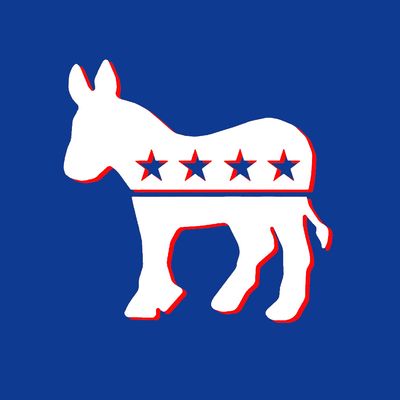
As the contest for the chairmanship of the Democratic National Committee revs up, one obvious pitfall for Democrats is that it will simply continue the rivalry between the people who supported the two major candidates for the 2016 presidential nomination. Without question, the initial front-runner Keith Ellison was an important part of Bernie Sanders’ campaign, and new candidate Tom Perez was an important part of the Obama administration, which supported Hillary Clinton.
The odds are good that some well-meaning peacemakers will try to lower the temperature of an Ellison-Perez fight by celebrating their equally strong progressive credentials, and encouraging a competition to show which of them can most eloquently present a policy agenda and message that meets the current perceived need for a clear “party line.”
Is that really the party chair’s job? And is the selection of someone to oversee the rather boring mechanics of the party the right forum for the kind of battle ideology and messaging many Democrats seem to crave as the Obama Era ends?
In an interview with the Washington Post’s Paul Waldman, Northwestern University’s Daniel Galvin, a political scientist who specializes in political parties, speaks for those who want some attention for the party’s body rather than its soul. Speaking of past DNC chairs who were effective in periods of Republican ascendancy, Galvin has this to say:
The main things these out-party chairmen did…was to focus on building the party’s organizational capacity without respect to ideology and policy positioning, and without privileging any particular factions in the party. They invested in human capital (training for campaign managers, for example, or teaching activists how to GOTV), in informational assets ([Howard] Dean’s voter file; microtargeting capacities), and worked to strengthen state parties…They worked to recruit good candidates wherever they may be (conservative Democrats in North Carolina, liberal Democrats in California). They don’t try to build consensus within the party or hammer out a platform on which all factions can agree.
There are other people in other places, mostly elected officials and people who would like to run for president, who can be entrusted with the agenda and messaging chores that only they will really be in a position to execute. And at moments like the one Democrats find themselves in today, a lot of the questions about positioning and ideology can only be answered after Republicans and their peculiar new leader make their play and expose themselves (as they undoubtedly will) to counter-measures. For all we know the momentary unity the GOP is experiencing won’t last beyond the first mismanaged crisis or lost Senate vote.
So Democrats would be well advised to put away those noisily grinding axes about moving the party to the left or the center or to “populism” for a bit and get someone working on the party mechanics, which always need work after a failed presidential campaign sucks the life out of every other endeavor. Ellison and Perez both have fine organizational credentials and so, too, do the two state party chairs currently in the field for the national job. Let those be the basis of the party’s choice for a chairman.






























